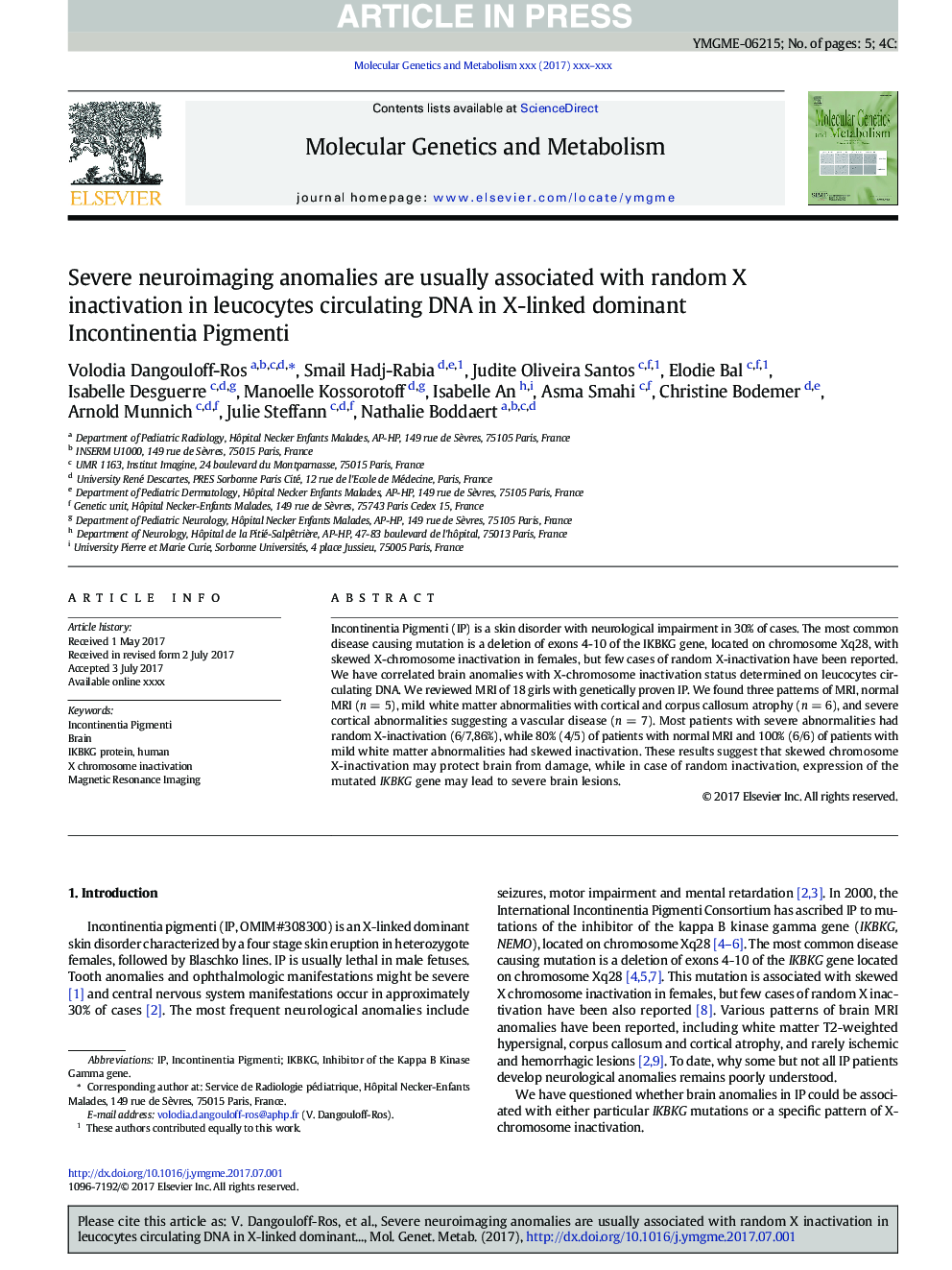| Article ID | Journal | Published Year | Pages | File Type |
|---|---|---|---|---|
| 8343689 | Molecular Genetics and Metabolism | 2017 | 5 Pages |
Abstract
Incontinentia Pigmenti (IP) is a skin disorder with neurological impairment in 30% of cases. The most common disease causing mutation is a deletion of exons 4-10 of the IKBKG gene, located on chromosome Xq28, with skewed X-chromosome inactivation in females, but few cases of random X-inactivation have been reported. We have correlated brain anomalies with X-chromosome inactivation status determined on leucocytes circulating DNA. We reviewed MRI of 18 girls with genetically proven IP. We found three patterns of MRI, normal MRI (n = 5), mild white matter abnormalities with cortical and corpus callosum atrophy (n = 6), and severe cortical abnormalities suggesting a vascular disease (n = 7). Most patients with severe abnormalities had random X-inactivation (6/7,86%), while 80% (4/5) of patients with normal MRI and 100% (6/6) of patients with mild white matter abnormalities had skewed inactivation. These results suggest that skewed chromosome X-inactivation may protect brain from damage, while in case of random inactivation, expression of the mutated IKBKG gene may lead to severe brain lesions.
Related Topics
Life Sciences
Biochemistry, Genetics and Molecular Biology
Biochemistry
Authors
Volodia Dangouloff-Ros, Smail Hadj-Rabia, Judite Oliveira Santos, Elodie Bal, Isabelle Desguerre, Manoelle Kossorotoff, Isabelle An, Asma Smahi, Christine Bodemer, Arnold Munnich, Julie Steffann, Nathalie Boddaert,
